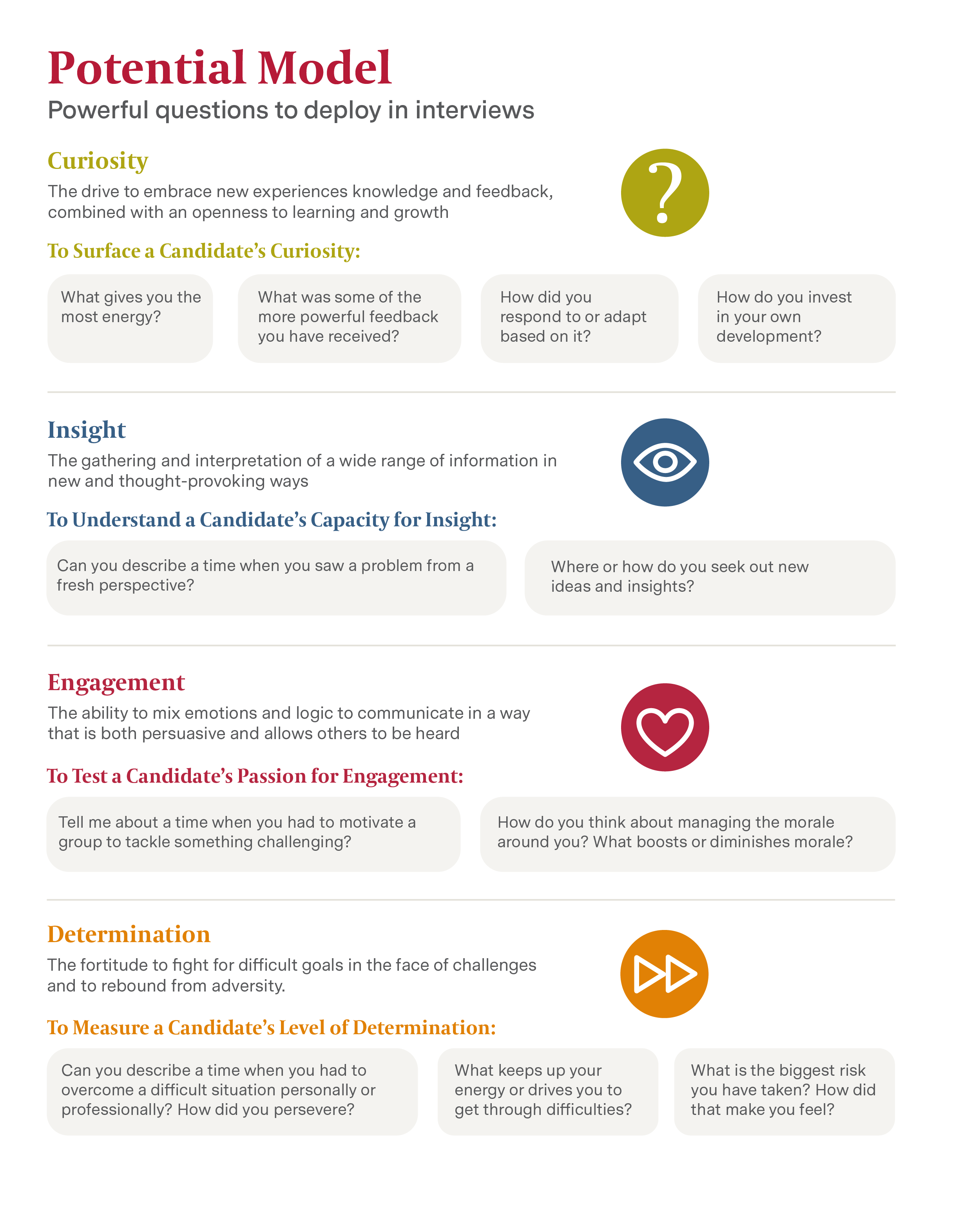Founders have a lot on their minds: launching a company, understanding the shifting marketplace, raising capital, finding that elusive product market fit. In the busy mix, hiring is a critical consideration and enabler, but is often a process in which founders can find themselves scrambling and struggling.
In early-stage and higher-growth companies, nothing is more important than making the right bets on people. Having the right people in key positions can make or break a startup or any fast-growing company. Indeed, an article in the Harvard Business Review reports 60 percent of startup failures can be linked to employees who turned out to be a poor match for an organization during a time of rapid growth.
In early-stage and higher-growth companies, nothing is more important than making the right bets on people.
In addition to bringing on the right teammates, early hiring also sends important signals to the wider business world. Proper and successful recruitment helps to build a start-up’s employer brand. This is critical when it comes to attracting and retaining talent.
So, how can a founder hire well? How do you decide between the right person for the job as it is versus people who will grow with the company? How do you solve for culture when your culture is also evolving? How do you make the decision between those with high potential versus those with solid previous experience?
Leaders will need to weigh the options and consider the pros and cons.
Hiring for Potential
Leaders in the hiring process often focus on candidates with experience. Indeed, the traditional job interview is framed around the experience question and applicants are asked to share stories and data from their previous working lives that show they have already demonstrated an ability to do the job at hand.
But for a start-up, experience may not be the only sign of an individual who is the right hire. We believe that although experience and accomplishments are important, they are not the only markers of a good hire. To make smart hires, sometimes you have to hire for potential – and that demands a different set of interview questions. What you want to know in this case is: What are the underlying themes that drive the job seeker? What inspires them or gives them energy? When are they at their best? These are the questions that will help tease out what kind of person the candidate is and how they might behave years down the road.
While it’s tempting to try, you can’t directly ask about potential. It’s not a question most candidates will be able to answer accurately. Instead, potential is assessed by looking for patterns in behavior over time.
What are the benefits of hiring for potential, rather than experience? Cost is an obvious factor. A less experienced individual will command a lower salary than an experienced pro. But there are other factors apart from dollars and cents:
- Adaptability. An individual with low experience but high potential may be better able to evolve and grow with your organization and its context.
- Innovation. Talented high-potential individuals often bring with them fresh perspectives that can lead to new ideas and possible innovations for the company.
- Loyalty. Once you make a bet on a high potential individual, you can groom that person to many roles.
- Diversity. Leaving aside traditional experienced-based hiring methods can open your options to bring in more diverse experiences and perspectives.
While it’s tempting to try, you can’t directly ask about potential. It’s not a question most candidates will be able to answer accurately. Instead, potential is assessed by looking for patterns in behavior over time. And, so interviewing for potential is a muscle many founders need to develop. It’s not about what someone has done or the metrics they have hit - these are easy facts to latch onto. Instead, it’s about how candidates have made decisions, operated and achieved over time. A founder may have to adjust to the pace of potential questions. So much in a startup moves quickly, but conversations to uncover potential are different. They take more time and more curiosity on the side of the interviewer. These are new muscles to develop, but based on our Potential Model, we’ve put together some powerful questions to deploy in interviews:

Hiring for Experience
Despite the plusses, hiring for potential is not always the right choice. There may be some instances in which potential alone is not enough and a functional expert is necessary to put the growing company on the right track.
Experience can be a critical need when it comes to hiring for a highly technical position. If you’ve been doing a particular task long enough, the reasoning goes, you’re going to be better prepared to handle similar tasks than someone who lacks that level of practice. It may be called for when the employee will be asked to execute a high-stakes, complex task on a tight deadline. A Chief Product Officer might be a good example of this. The leader of a corporate turn-around, or a digital transformation or M&A scenario would also qualify. Experienced individuals also tend to be better problem solvers and have the tendency to commit fewer mistakes thanks to learned experiences. They can hit the ground running.
Experience can be a critical need when it comes to hiring for a highly technical position. If you’ve been doing a particular task long enough, the reasoning goes, you’re going to be better prepared to handle similar tasks than someone who lacks that level of practice.
Experience can also be a critical element when time is not on the company’s side. A leader must understand how the vacancy is affecting the firm’s general outlook in areas such as business impact and ability to serve customers. Do you have the time to spend to nurture the person with potential? Or do you need someone who can deliver on Day One?
Still, there are downsides to hiring based primarily on experience. For example, experience does not necessarily equal performance. Also, while skills can be taught, curiosity cannot. A more experienced hire may be less willing to change habits and be adaptable in an evolving new company.
Why Not Hire for Both?
The optimal solution is not to choose, but to aspire to a combination of attributes. The reality is that potential should always run in parallel to experience. Just because someone has achieved success in one environment, doesn’t mean it that will transfer to another. It’s also possible that an experienced hire may be the functional expert you need right now, but that individual will not want to stay on long term. It means that sooner rather than later, you may be trying to fill this same position because the original hire was not a good long-term bet. This part of the weighing of pros and cons a leader must find time to do, even during the heady period of a start-up. Ultimately, even if experience is important, curiosity is something all fast growing companies should look for. Curiosity will help support, enable and be agile to growth.
The reality is that potential should always run in parallel to experience. Just because someone has achieved success in one environment, doesn’t mean it that will transfer to another.
What’s more, there are probably experienced candidates who also still have untapped potential. When you hire for both, you get the assurance and expertise that come with experience. But you also get the curiosity, insight, engagement and determination that typically accompany unrealized potential.
Whether potential or experience tip the scales, the overall mandate is clear: Leaders of new and fast-growing companies must make smart hiring a priority and give it the time and thoughtful consideration it demands.





